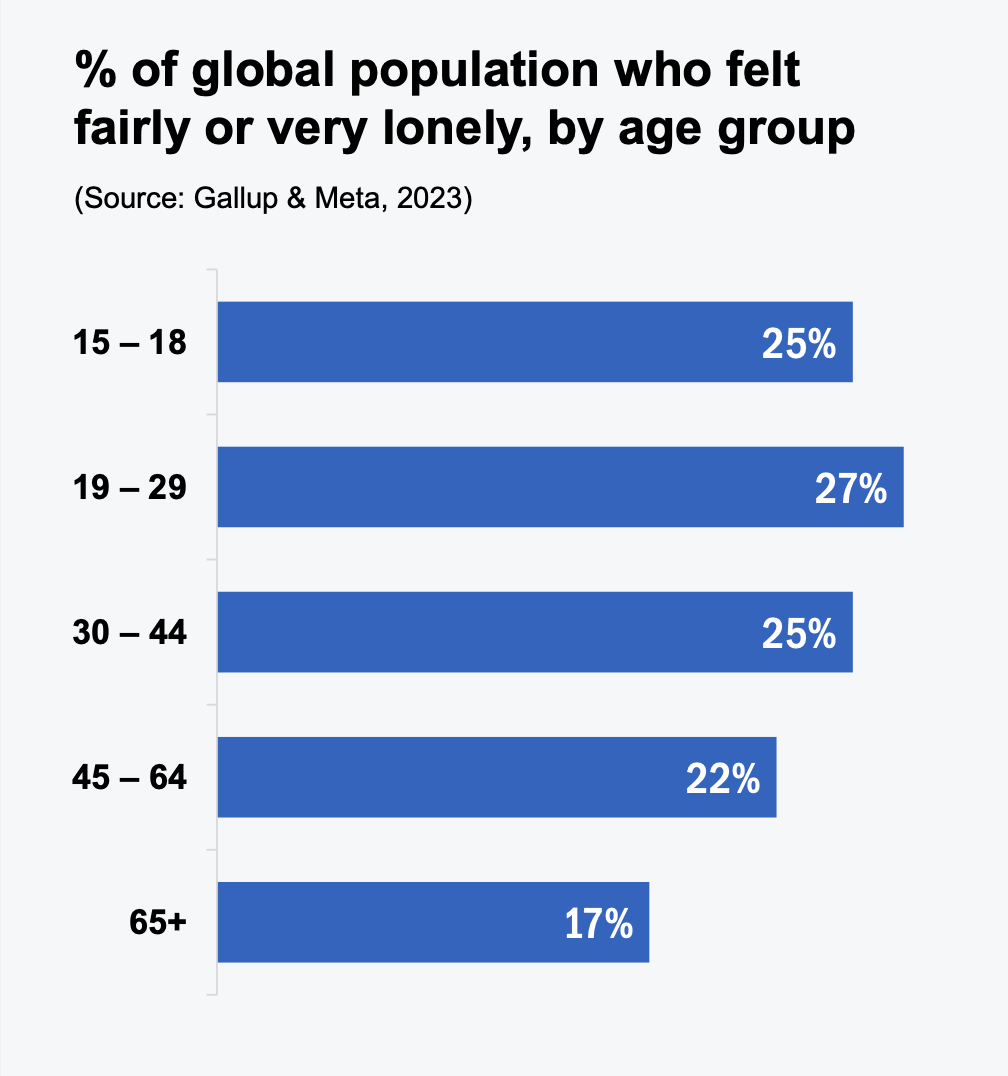A recent poll conducted by the Institute of Policy Studies (IPS) has presented an intriguing snapshot of the changing social landscape among young Singaporeans, particularly those aged between 21 and 34. The study highlights shifting attitudes towards marriage and parenthood, work prospects, and civic engagement.
However, one of the most significant findings revolves around loneliness and social anxiety, which have emerged as prevalent issues among this demographic.
Loneliness and social anxiety are no longer mere buzzwords — they have become haunting realities for many in the 21 to 34 age group. The poll illuminates the quiet struggles of this demographic, showing that beneath the veneer of progressiveness and adaptability, there exists a deep-seated longing for connection and acceptance.

Source: IPS
Loneliness and Social Anxiety: A New Norm?

Source: iStock
The poll revealed that a considerable number of respondents in this age group experience feelings of loneliness and social anxiety, illuminating a growing concern among Singapore’s youth. These issues were particularly pronounced among those who are single, indicating a correlation between relationship status and mental health.
Changing Attitudes Towards Marriage and Parenthood Amidst Loneliness and Social Anxiety
The study unveils an intriguing duality — 82% of respondents believe it is acceptable to choose singlehood, yet 70% of unmarried individuals still foresee marriage in their future. This contrast suggests a shift in societal norms, where traditional milestones like marriage and parenthood no longer define self-fulfilment.
However, the persistence of loneliness and social anxiety hints at an underlying desire for companionship and familial bonds.
Concerns About Work and Civic Engagement: Amplifying Loneliness and Social Anxiety?
The poll also investigated young Singaporeans’ viewpoints on work and civic engagement, revealing that these areas too might be contributing factors to loneliness and social anxiety. Younger respondents express concerns about their job prospects and find securing their preferred employment challenging. This situation could potentially exacerbate feelings of isolation and stress.

Source: iStock
Despite these challenges, the outlook is not entirely bleak. Young Singaporeans demonstrate readiness to adapt to changing work landscapes, expressing willingness to explore different career paths and embrace technological advancements. They also show increased levels of civic engagement, both online and offline, compared to older demographics.
A Global Issue

Source: IPS
The issue of loneliness and social anxiety among young people isn’t unique to Singapore. A 2023 Gallup & Meta study conducted across 142 countries found that young people aged 19-29 reported feeling lonelier than any other age group.
The social distancing measures necessitated by the COVID-19 pandemic have disrupted interactions with friends and family, leading to concerns of an “epidemic of loneliness”. While loneliness is typically associated with the elderly, recent research suggests that young people are not immune to it.
Being aware of these issues is the first step to addressing them. As we move forward, it’s essential to foster open conversations about loneliness and social anxiety, especially among younger individuals. Providing support and understanding can help alleviate these feelings and promote a more inclusive and connected society.
Addressing Loneliness and Social Anxiety: A Way Forward
IPS poll highlights the need to address loneliness and social anxiety in Singapore’s youth. Evolving societal norms demand tailored support for their unique experiences. This fosters an inclusive society where young adults feel understood and empowered.